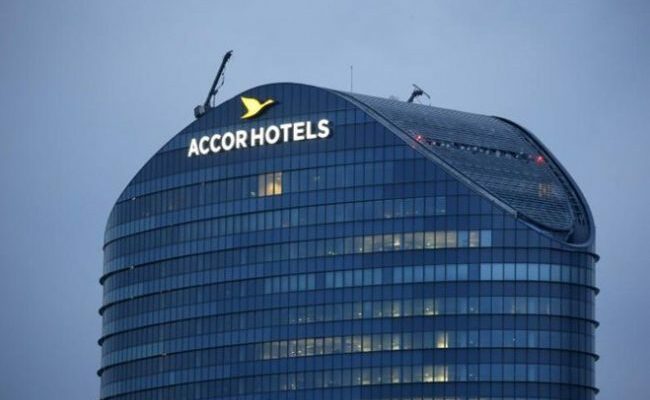(BFM Bourse) – The research office raised its opinion to purchase on the hotel group, seeing potential in several key regions of the company.
As Accor prepares to return to the CAC 40 on Monday, more than three years after leaving it, optimism about the value does not weaken.
According to the investing.com consensus, 15 of 19 analysts covering the stock recommend buying the stock. And, this Wednesday, Jefferies raised its advice by two notches on the action, going from “underperformance” to buy, while increasing its price target to 47 euros against 30 euros previously.
This brings the action of the company led by Sébastien Bazin, which rose 1.6% on the Paris Stock Exchange around 3:15 p.m.
A new share buyback program?
Since 2018, Accor has implemented an “asset light” strategy to align itself with the models of its competitors. The company has gradually reduced its stake in AccorInvest, its former real estate division, which now owns the premises of its hotels. Accor still holds 30% of the capital of this former subsidiary and currently owns less than 3% of its hotels (in number of rooms) compared to 42% in 2014.
With this model, Jefferies estimates that the group’s earnings per share should increase by 16% on average per year over the period 2024-2027.
“The company has implemented a sensitive ‘asset-light’ growth algorithm, and displays exposure to emerging markets, a diversified pricing architecture as well as visibility on shareholder returns,” underlines the bank.
Accor has notably committed to returning 3 billion euros to its shareholders over the period 2023-2027, and launched a 400 million euro share buyback program in October. Jefferies also judges that the company has room to launch a second program this year, also worth 400 million euros.
In the medium term, Jefferies also explains that the sale of the remaining 30% in AccorInvest could also lead the group to return more cash to its holders. But the bank estimates that this will not happen before 2025 or 2026. Because AccorInvest must first get out of debt, the former Accor subsidiary planning to sell 1.7 billion euros worth of assets that are not performing well enough. here in 2025.
The Olympic Games and promising regions
In the shorter term, Jefferies judges that Accor is in a more buoyant dynamic than its stock market peers. “In the short term, we believe that Accor’s key geographic regions are growing faster than those of its competitors,” summarizes the bank.
This is the case for the Asia-Middle East region, which represents around 38% of Accor’s revenues, according to Jefferies. In Asia, Chinese tourism should rebound thanks in particular to lower travel costs, according to flight data examined by the bank. The Middle East should benefit from the desire of several countries, led by Saudi Arabia, to develop tourism.
In Europe, Jefferies notes that American airlines are increasing their flight capacities to the Old Continent, which suggests robust demand. Above all, the major sporting events of 2024 will drive activity, namely Euro 2024 football in Germany and – obviously – the Olympic and Paralympic Games in Paris. “The Olympic Games should stimulate prices, in a context where new supply is limited (90,000 rooms available in Paris in 2024 compared to 120,000 rooms in London in 2012),” explains Jefferies.
A discount destined to be reduced
As a result, the bank estimates that Accor should achieve growth in its RevPAR (revenue per available room, a benchmark indicator for the hotel sector) of 4.7% in 2024, compared to 3.7% for its main rival, the British IHG. And in an optimistic scenario for hotel demand, the gap would be even greater, with Jefferies retaining growth of 7.1% for Accor compared to 5.6% for IHG.
However, Accor is currently trading on the stock market at 10.6 times its gross operating profit (Ebitda) expected in 2025, compared to 15.2 times for IHG, according to Jefferies. The French group therefore shows a discount of more than 30% compared to its British rival, compared to a historical gap of 14%, according to the bank. This while its prospects for RevPAR growth and shareholder return are more promising at Accor than at IHG.
Note that before Jefferies, the Swiss bank UBS had purchased Accor at the end of February. “Accor’s valuation multiple is starting to recover from 2023. We believe this is because the management team has demonstrated discipline in its use of capital and continues to put implement its strategy”, explained the Swiss bank.
“We believe that it is possible to further increase the multiple (of valuation on the stock market, editor’s note) if management continues to implement its strategy and therefore to reduce the valuation gap compared to comparable companies like (the British) IHG”, she continued.
Julien Marion – ©2024 BFM Bourse
Are you following this action?
Receive all the information on ACCOR in real time:
